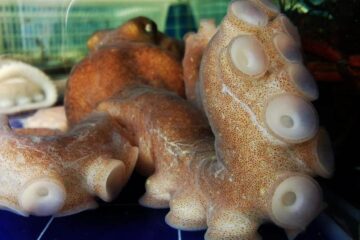New observations on properties of water

Bogdan’s results show that mixture droplets consisting of sulphuric acid and water can be slowly cooled down to -140 degrees Celsius and then heated again without ice formation. The formation of ice is particularly problematic in cryopreservation, as the crystal formation damages cell structures.
Bogdan has conducted his experiments by cooling and heating droplets of 0.5-6 µm in diameter. His study focuses on two forms of water: low-density amorphous ice (LDA, or so-called glassy water) and highly viscous water (HVW), which is a liquid phase that LDA melts into. Bogdan reports that HVW is not a new form of water as some scientists believed. Bogdan’s study Reversible Formation of Glassy Water in Slowly cooling Diluted Drops has been published in Journal of Physical Chemistry in June 2006.
Bogdan himself applies his observations on the properties of water in cloud research, and he and his colleagues have recently published a study dealing with cirrus clouds (Formation of Low-Temperature Cirrus from H2SO4/H2O Aerosol Droplets, Journal of Physical Chemistry, November 2006). Their study suggests that, unlike previously thought, the cloud crystals in cirrus clouds are not completely solid ice, but are covered with a layer of liquid water and sulphuric acid. The layer effects for instance the reflectivity of the clouds, and therefore the climate. It has also been observed that the rate of ozone loss is higher on liquid than on solid surfaces. The results therefore indicate that the ozone is destroyed in the cirrus clouds faster than conventionally has been thought.
Media Contact
More Information:
http://www.helsinki.fiAll latest news from the category: Ecology, The Environment and Conservation
This complex theme deals primarily with interactions between organisms and the environmental factors that impact them, but to a greater extent between individual inanimate environmental factors.
innovations-report offers informative reports and articles on topics such as climate protection, landscape conservation, ecological systems, wildlife and nature parks and ecosystem efficiency and balance.
Newest articles

Octopus inspires new suction mechanism for robots
A new robotic suction cup which can grasp rough, curved and heavy stone, has been developed by scientists at the University of Bristol. The team, based at Bristol Robotics Laboratory,…

Peptides on Interstellar Ice
A research team led by Dr Serge Krasnokutski from the Astrophysics Laboratory at the Max Planck Institute for Astronomy at the University of Jena had already demonstrated that simple peptides…

A new look at the consequences of light pollution
GAME 2024 begins its experiments in eight countries. Can artificial light at night harm marine algae and impair their important functions for coastal ecosystems? This year’s project of the training…





















